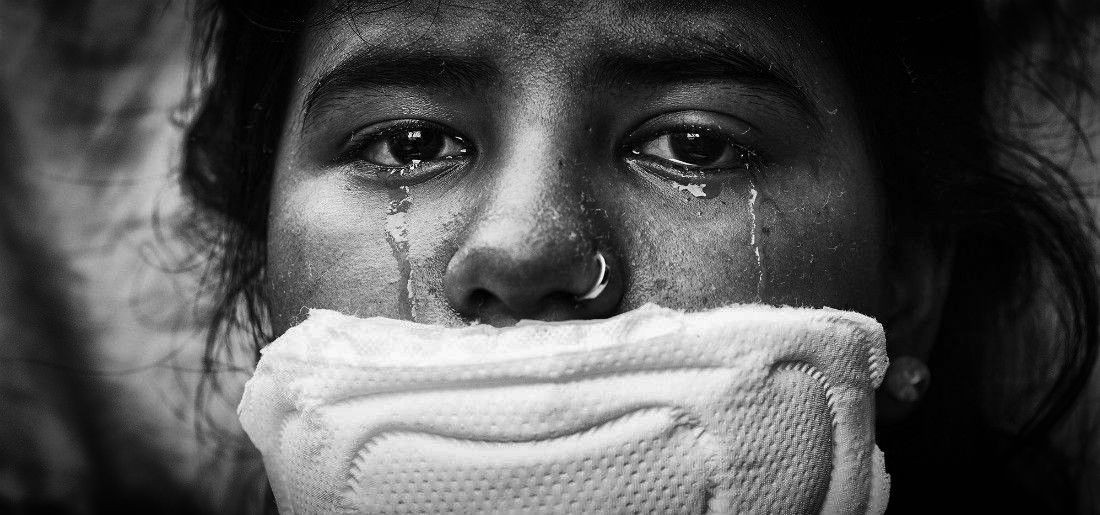Menstruation is the fancy, medical way of saying you’re getting your period. Every month, a person assigned female at birth undergoes a series of hormonal changes that prepares the uterus for potential pregnancy. In the absence of fertilization of the egg (Ovum) by a sperm, the uterus sheds its lining. You experience it as a bloody discharge coming from your vagina every month. It is important to note that the definition of a normal menstrual cycle varies, lasting anywhere from 21 to 35 days, although much of the information available is based on the average 28-day cycle. Defining the range of a normal cycle means that if you often experience cycles lasting shorter than 21 days or longer than 35 days, you should see a gynecologist as this may be linked to some hormonal disorders. On an average, there is bleeding from 3-7 days during the period and around 80 ml of blood is lost. It is necessary to recognize if you are bleeding too little or too much or too long as this might be a signal that something is going wrong in your body.
There are many questions that one may have regarding their menstruation, especially about the onslaught of symptoms that come with the process. Many individuals suffer from severe emotional imbalances and are some of them are diagnosed with Pre-Menstrual Dysphoric Disorder (PMDD). If you feel like the mental and physical symptoms preceding your period are too much, then you might be suffering from PMDD and would benefit to see a physician or psychiatrist. There are also misconceptions regarding seeking help in the form of medicine for pre-menstrual symptoms. Many people would choose to suffer through the excruciating pain of menstrual cramps rather than take a simple medicine that would make daily functioning so much easier. They believe that pain relief medicine will make them addicts, make their periods worse in the future and prevent pregnancies in the future. These are all myths that we need to bust, and the focus should be on providing fact-based solutions as it emphasizes the significance of seeking medical help without perpetuating the stigma associated with it.
Another area of focus is on period hygiene. During this time of the month, the vagina is vulnerable to infections and the presence of moist blood can act as a breeding site for bacteria. Use of sanitary napkins (pads), tampons, menstrual cups or even cotton cloth pads should be done properly. Frequent changing of products every 4-6 hours, using products within their manufacturing date and making sure to wipe from front to back while washing the genitals are some of the steps you can follow to maintain hygiene. Period sex is also totally normal and might even help with decreasing cramps, but should always be done with consent, using barrier methods, particularly condoms, to ensure that it is safe. Menstrual health is intertwined with issues of access, affordability, and cultural norms. Many individuals face barriers in accessing proper menstrual hygiene products, leading to potential health risks. A feminist approach calls for breaking down these barriers, ensuring that all individuals, regardless of socio-economic background, have access to safe and affordable menstrual products.
It is important to normalize menstruation due to a number of factors revolving around how something entirely physiological and natural has been turned into a weakness and impurity because of religious and cultural beliefs among some communities in Nepal and beyond. Due to the hormonal fluctuations that bring about the period, the person is physically, emotionally and mentally vulnerable. With everything going on internally, there is added pressure to rely on others for food and drink, stop yourself from celebrating important festivals with some girls even having to face the most extreme of restrictions. There have been news reports on many girls having to sleep on the cold floor and keep themselves from going to school purely out of restrictions imposed by others on their freedom. In addition, menstruation among transgender men and non-binary people is a distinctive and much disregarded part of their life experience. In the transgender men and non-binary community, managing menstruation entails navigating cultural norms, shame, and a dearth of inclusive healthcare practices.
Along with shedding light on society’s toxic perception of menstruation, we also need to empathize on how physically incapacitating the first few days of a period is. There is a myriad of symptoms such as tender breasts, changes in mood, nausea, diarrhea, bloating and the bloody cramps! Imagine having to go through all these changes every month, dealing with them, getting out of bed and continuing on with your day as if nothing is wrong at all. God forbid there is one outburst or negative reaction, the response everyone gives is, “they must be on their period!”, or “woah, watch out for this one’s mood swings!” Instead of working together to create period friendly schools, homes or work environments, we are complaint with two extreme alternatives, either we shun the individual or make a mockery out of their situation. It is our duty as responsible members to create a just environment where principles of equity are maintained. It is also important to acknowledge the fact that experiences of menstruation may differ based on factors such as caste, class, gender identity, and ability, emphasizing the need for inclusive conversations that consider diverse perspectives.
